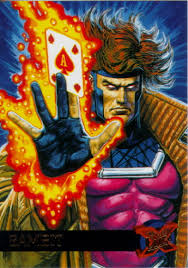
One of my favorite just for fun blogs was my
first ridiculous what if post about the ninja turtles. In it I posited a hypothetical world based on one simple premise. To continue in that proud tradition I today got to thinking about the idea of some of our beloved comic book heroes. Today's premise: what if these heroes gave up saving people from criminals and started saving them from sin, death, and hell? Basically, what if they became the pastors of our churches? I'll admit, it only took thinking about a few heroes to make it totally worth it. For fun I'll say how this hero would be gifted for ministry, and in what ways they might struggle as a parish pastor, just so you realize that super-powers may not be all that they are cracked up to be, or at least that it might take more than a superhero to make a "super-pastor" in the eyes of many. To keep it fair we'll do an equal number of DC and Marvel heroes (while I may be a DC man, in the ELCA we are open to Marvel people - even if some question such openness).
1.
Amazing Spiderman: Since the pictures here indicate some of the inspiration behind this post, I figured I would begin here with your friendly, neighborhood Spiderman.
 Why would he be a good pastor
Why would he be a good pastor: He could use his web on first time visitors, those who sneak out early, or overly rambunctious children (only in extreme circumstances of course). Always good with his humor and likability, he would easily be well-received by the congregation. Additionally, he handles his role with carefully because he knows that "with great power comes great responsibility". Also using his web and camera (with timer) he can get some great in-action shots during the Sunday service for your website or newsletter. Also, his Spidey-sense may be a useful intuition for sensing something is wrong in pastoral care situations.
Why he might not work out: Taking communion through the mask might be difficult. And such masks muffle the sound-system's reception making him harder to be understood by older, hearing impaired members. Peter Parker always seems to have difficulty in managing his personal life in relation to his responsibility as Spiderman, and so as Pastor Spiderman he seems likely to be doomed to poor clergy self-care and is a significant burn-out risk.
Key Bible Verse: Joshua told the people, "Consecrate yourself, for tomorrow the LORD will do
amazing things among you." -Joshua 3.5
2.
Aquaman: The most mocked man in all of superherodom, even after a successful reboot of the character in DC's New 52 (highly recommend it by the way) he still seems poised for mockery.
 |
Anyone seeking to form an opinion about Aquaman
should read DC's new 52 |
Why would he be a good pastor: Well for one, he is used to being unpopular. Aquaman is the kind of pastor who would do and say what needs to be done because it is right. As the former king of Atlantis, he is a natural leader (and knows what it is like to live in a totally legalistic culture). Also, if you do river or ocean baptisms, he can make sure no sea predators attack you while being baptized. With all his orange he'd make a good Wartburg Seminary grad. His predisposition to water may come in handy since water is a oft used image in the Bible and essential to the great sacrament of baptism.
Why he might not work out: Who would even call him to be their pastor? Aquaman's unpopularity literally precedes him, unfairly even, which means that many church's wouldn't even give him a call interview. Also, the guy has lived in a lighthouse or an underwater city...not what I would call accessible by any means. His crazy, powerful, and easily offended wife Mera would also probably make a horrible pastor's wife. Not that it should necessarily matter, but we know it does.
Key Bible Verse: "Blessed are those who are
persecuted because of righteousness, for theirs is the kingdom of heaven." -Matthew 5.10

3.
Gambit: One of the most popular X-Men of all time (and sadly yet to be featured in the movies save for a brief, underwhelming role) and a long-time favorite among my brother and I when we were young.
Why he would be a good pastor: if you are looking for a pastor who could really bring a pietism and reform to your community, Gambit is the guy. At least his power is (character may be another thing). Gambling problems in the community that people won't give up? All Gambit needs to do is come in and blow the deck up. Same with liquor or anything else that needs extreme reform/purging. If you don't believe those things can be destructive, he'll make them destructive! Plus, the guy is so awesome looking already, I'm pretty sure a clerical under his trench coat is all you need to really finish the look. You know the look I'm talking about: a Russell Crowe, renegade with authority, ready-to-help-the-poor-or-fight-vampires kind of look.
Why he might not work out: If the guy can charge up things he touches with enough kinetic energy to cause them to blow up...do you really want to take communion from him? How about handing him your baby to baptize? Additionally, Gambit was a former thief and had trust issues among the X-Men. And he was a ladies man which is about the last thing the church might need at this point. Fair or not, he's a scandal waiting to happen.
Key Bible Verse: nor
theives, nor the greedy, nor drunkards, nor slanderers, nor swindlers will inherit the kingdom of God. And that is what some of you were. But you were washed, you were sanctified, you were justified in the name of the Lord Jesus Christ and by the Spirit of our God. -1 Corinthians 6.10-11
4.
Flash: the fastest man alive, being introduced to many with his new show and due to be introduced to more with his own film in 2018, this speedster is also well appreciated by fans of
The Big Bang Theory.
Why he would be a good pastor: He could speed through the service so that church would never go over an hour. Pastoral emergency? He's there before you hang up the phone. Also he could serve multiple churches in the country, miles apart from one another, and still spend significant amount of time with him members since it would take but a moment to travel to the next church in time for service (and if he's late who cares, they'll still get out early!). He'd be that one pastor who never says "I don't have time to do it all".
Why he might not work out: Some things in faith shouldn't be rushed through. For churches that utilize liturgical colors red is the least used one. And are we entirely sure God isn't mad at this guy? I mean he did get struck by lightning after all.
Key Bible Verse: The creatures sped back and forth like
flashes of lightning. -Ezekiel 1.14
5.
Human Torch: The coolest member of the Fantastic Four and a true hot-shot superhero. Also well named.
Why he'd be good: No acolytes or ushers at your church? No problem. This guy can light his own candles, heck he can be the torch for walking in a processional. And for those visual learners he would be able to do some great illustrations for you on Pentecost when talking about tongues of fire, or with Moses and the burning bush. You can turn out all the lights for Good Friday and folks will still be able to see him and he'll still have enough light to read his sermon notes (unless of course he starts them on fire). He could be a great
fire and brimstone preacher - able to provide more imagery than Jonathan Edwards. Oh, and he works on a team of four and so he is a perfect addition to a large multi-staff church.
 Why he might not work out
Why he might not work out: If he gets too close to the pulpit bible he might start it on fire, not the image you want to bring across. Also, if you didn't already think he was a little full of himself just wait until his powers are merged with church leadership. If your church likes to turn down the lights for
Silent Night on Christmas Eve it might lose some of the effect with this guy lighting up the chancel. And if you're in any way weary of homosexual pastors or the controversy around it, you might not want a guy who regularly shouts "Flame on!"
Key Bible Verse: For this reason I remind you to fan into
flame the gift of God, which is in you through the laying on of hands. -2 Timothy 1.6
6.
Batman: The face of DC, albeit a masked one, and one of the most appealing comic book heroes of our day, in part because he is not a
superhero in the sense of lacking powers.
 Why he'd be a good pastor
Why he'd be a good pastor: Being filthy rich already, he wouldn't have to work for pay or be bi-vocational. He could be a full time pastor at no cost to his congregation. Additionally, your church would have all the up-to-date technology needed to fully execute your ministry. If your church provides a parsonage his Butler would take good care of it. Being the greatest detective to ever live, he would know all his parishioners sins and secrets even if they tried to hide them from him. His childhood trauma of losing his parents would also give him an honest and real approach towards death in times of pastoral care. Anyone who has read Justice League Comics will know he is adept at running meetings as well. Fans of the
Dark Knight Returns comics will note that he cannot stay retired, making him a wonderful interim pastor in his later years.
 |
This could end up as the Easter Outfit
Oi! |
What might go wrong: For starters, his tendency to beat confessions out of parishioners who withhold information from him. His efforts to keep bats
in the church might also cause the gray hairs. Also, his interpretation of the common biblical phrase "Do not be afraid" would probably be preached not as gospel but as a self help system of "embrace the fear, be the fear!" Also, an entire service and sermon done in that ridiculous "I'm batman!" voice might get old real quick. Every thing in church getting "bat" attached to the name, like bat-stole, the bat-hymnal, bat-tism.
Key Bible Verse: Passing through the street near her corner; and he went the way to her house, in the twilight, in the evening, in the black and
dark night. -Proverbs 7.8-9

7.
Storm: Halle Berry's Catwoman may not be anything to write home about, but she made a great Storm. And Storm made a great X-Man. She walks the line of leader and follower wonderfully making her highly flexible to the situation.
 Why she's be great
Why she's be great: Her leadership skills would really fit in a multitude of contexts. Whether it is a solo pastorate or a large staff, senior or associate position, Storm could handle it well. She also comes with teaching experience working at Xavier's School for the Gifted. Also nothing would ever be canceled due to the weather, an important talent in some regions of the country. And if people refused to repent she could hurl lightning bolts at them. And if we're talking the old X-Men Cartoon Storm, that woman had a preacher's voice!
Possible Issues in her ministry: Churches with copper steeples may not want someone who so regularly creates electrical storms. Her speech at Xavier's graveside in X-Men III (not that anyone watched it) suggests she does poor funerals. And she would have to have really developed her answer to questions of theodicy in relation to natural disasters.
Key Bible Verse: Then the LORD spoke to Job out of the
storm: -Job 40.6
8.
Robin: I figured if we got batman we should add the boy wonder (or girl wonder in a few versions through the years) as well to the list.
 His gifts for ministry
His gifts for ministry: Assuming number 6, he's a PK (pastor's kid), and therefore he know's the life before he even enters into it. In fact he gets started doing ministry with his dad (or guardian, however you want to refer to their relation). He comes with all the gadgets and skills as Batman but without the baggage. Having dressed like a colorful Zorro in short-shorts, embarrassment is not in this guy's vocabulary. He's young, and doesn't that mean he'll automatically attract young people [to be read sarcastically]. He already says "Holy [insert holy object] Batman!" all the time showing he is well versed in church talk and comfortable using it in any circumstance.
 Why he might not work out
Why he might not work out: whether Robin or Nightwing, he's basically still stuck in Batman's shadow. Even that verse in Timothy about not being despised because of your youth won't save this guy from being treated poorly. He has "Youth Pastor" written all over him, even then it will be hard to take him seriously...especially if when he pounds the pulpit authoritatively a giant "POW" appears in front of him.
Key Bible Verse: Don't let anyone look down on you because you are
young, but set an example for the believers in speech, in life, in love, in faith and in purity. -1 Timothy 4.12
9.
Wolverine: Probably the most popular of the X-Men, certainly of the ones featured thus far on the big screen (as evidenced by his two stand alone films).
 Why he would work out
Why he would work out: Churches that don't like a lot of overhead, or "interference" by church-wide governance/hierarchy would love Wolverine as their pastor, since he wouldn't listen to them anyways. Your church needs a van? He'll borrow the one from the Methodist church down the street without asking. Also, no one would dare interrupt the Wolverine, making for the quietest congregations ever during sermon and prayers so you can really concentrate on what is being said. With his regenerating powers you could literally crucify him for your Holy Week play, making for a more realistic experience than Mel Gibson's
Passion of the Christ. On top of it all, every young person would think your church has the coolest pastor ever. And if you saw Wolverine in
Les Miserables, then you know he'll have a beautiful singing voice.
Problems and Issues: Regenerative powers may make it hard for him to connect with the terminally ill. Plus, if you don't like the old "doom and gloom" preachers, remember this preacher is over 100 years old. Instead of being called "brother" or "sister" in Christ he'd just refer to everyone in the congregation as "bub". Overseas missions would be difficult as airport security would take forever. And the building and maintenance committee might get frustrated with claw marks all over the pulpit after particularly passionate sermons. His heightened sense of smell might forbid certain fundraisers such as Lutefisk dinners.
Key Bible Verse: Do all have the gifts of
healing? Do all speak in tongues? Do all interpret? -1 Corinthians 12.30
10.
Green Lantern: Will power and imagination is all it takes for this hero to produce anything, so long as you are ok with it being green.
The good: For liturgical churches, Time after Pentecost, and Time after Epiphany, usually the most
ordinary time (pun intended) of the year (and dare I say most liturgically boring) would instantly become the most visually striking. The stoles and paraments would
glow green! Also for those visual people, he could produce an image of whatever he wanted to illustrate his sermons. His ring could do more for his research and checking on questions than commentaries or google. Not enough communion assistants? He could serve both elements by himself.
The bad: All this is based on how imaginative he is, and seminary would likely stifle that imagination in such a way he couldn't produce much anyways. And if he has a strong will, all it takes is a church bully to break that. He might end up powerless in the church. And Hal Jordan without powers in the New 52 for example is kind of inept. He also has to keep his lantern close, otherwise towards the end of a particularly long weak his ring will run out. Hope you like green jello, because that is what will be served by him at potlucks from here on out.
Key Bible Verse: He is
green before the sun, and his branch shooteth forth in his garden. -Job 8.16
11.
Thor: had to be at least one Norwegian pastor right? Is he extra-dimensional or a god? I suppose it depends who you ask. He's awesome either way.
Gifts for ministry: another "god" professing faith in the one true God sounds like quite the conversion story to me. His presence alone is a "get" for the church. I mean, his sermon on idols could literally be "stop worshiping me"! A leader in Asgard, he has the natural skills to lead a congregation, even a dysfunctional one given all the times he's had to deal with Loki's treachery.
 Why it might not work out
Why it might not work out: Is too handsome to be a pastor a legit problem? Well if not there is always the whole having been worthy to possess the power of Thor thing that makes him predisposed to emphasizing the worthiness of members and preaching justification by merit not by faith.
Key Bible Verse: For great is the LORD and most
worthy of praise; he is to be feared above all
gods. 1 Chronicles 16.25
12.
Superman: My favorite superhero had to make the list. I just couldn't leave him off.
Why he'd be a good pastor: well let's face it, if Superman cannot satisfy a congregation, no one will. If your hot dish is cold by the time church is out, he can heat it with his heat vision. With his x-ray vision and superhearing allow him to keep tabs on his members, and when one is in distress and needs a pastor his superspeed can get him there. He can be as radical as necessary to preach the truth without fear of being stoned or shot. No pulpit? He can fly high enough for everyone to see him. He not only can read at super-speed but he learns at superspeed (he once learned how to perform surgery on Lois in a matter of seconds), meaning he can read as many commentaries and books on theology as you can throw at him as well as read the Bible once a day. And his parents raised him in a good Christian home (if I remember they were Presbyterian) and instilled good values in him.
Why he might not work out: If you don't like pastors who use way too many stories about themselves in sermons watch out, because so much of Superman origins and mythology is based on biblical characters or has parallels with others. He is likely to form most of his sermon illustrations from his own life. Also, if anyone is prone to a Messiah complex it's this guy. And members are likely to feed it. There is a long history of Superman worship in the comics and you might get too enthused about your pastor and not about Jesus.
Key Bible Verse: I don't think I am in the least inferior to those "
super-apostles". 2 Corinthians 11.5
 So I have been reading Comics and Graphic Novels galore this year. Pretty much all from the DC Universe (with the exception being Walking Dead). The result has been a full immersion into the DC mythology and universe. And while I am mostly involved in the universe's current reboot (dubbed as the "New 52") I am also reading into the wider world including the old canon and the non-canonical stuff. And so I thought I would share some of the gems I have read from the pre-New 52 graphic novels.
So I have been reading Comics and Graphic Novels galore this year. Pretty much all from the DC Universe (with the exception being Walking Dead). The result has been a full immersion into the DC mythology and universe. And while I am mostly involved in the universe's current reboot (dubbed as the "New 52") I am also reading into the wider world including the old canon and the non-canonical stuff. And so I thought I would share some of the gems I have read from the pre-New 52 graphic novels. 
